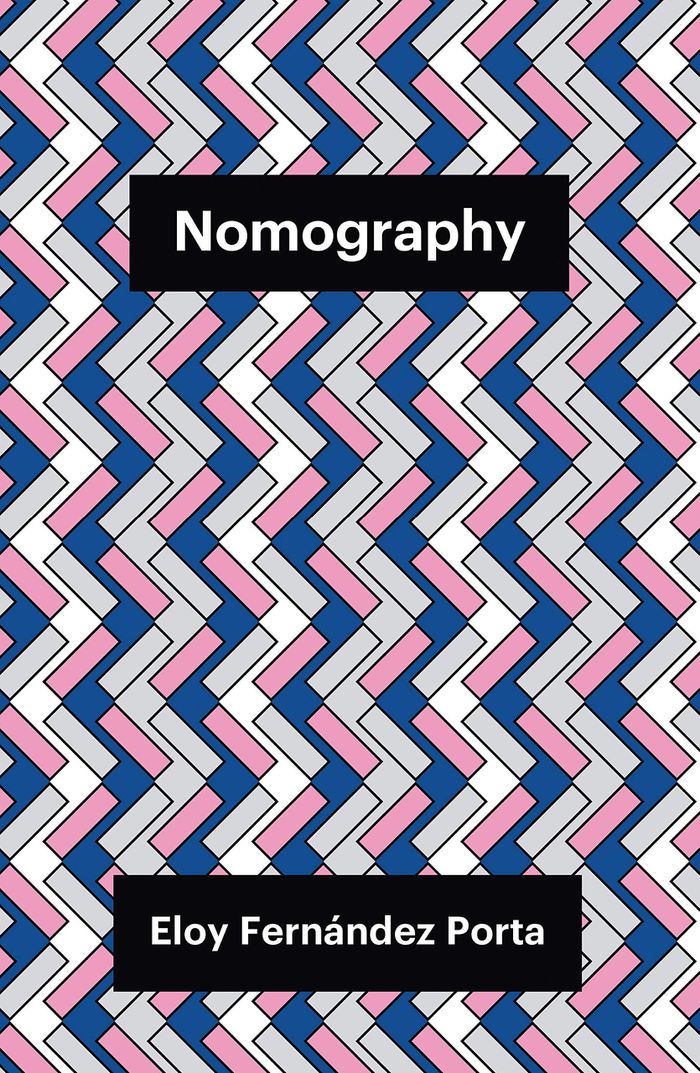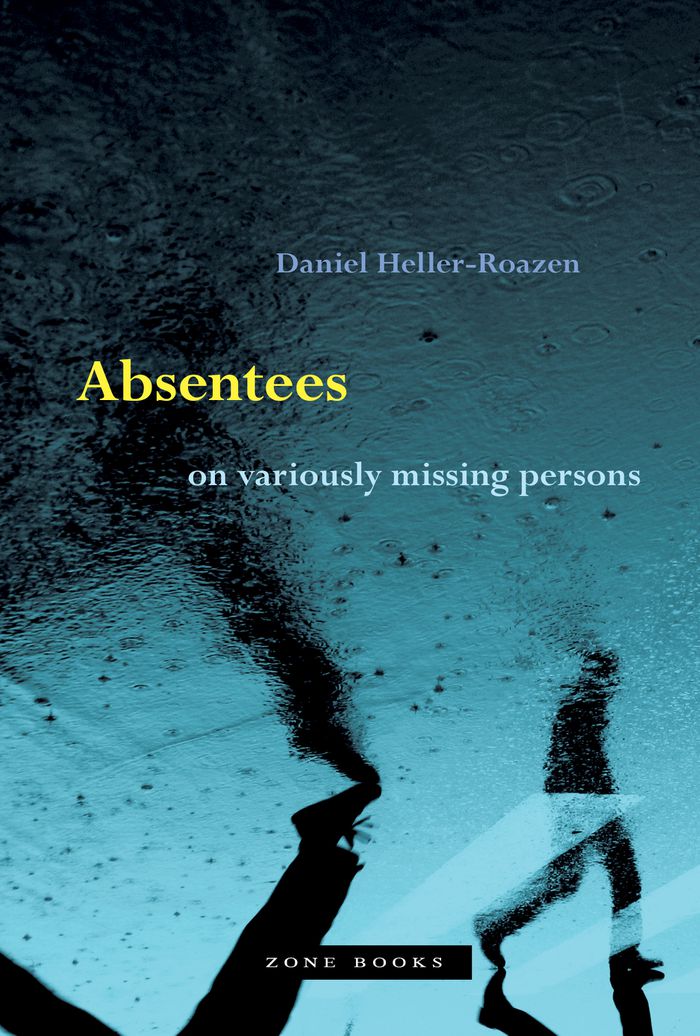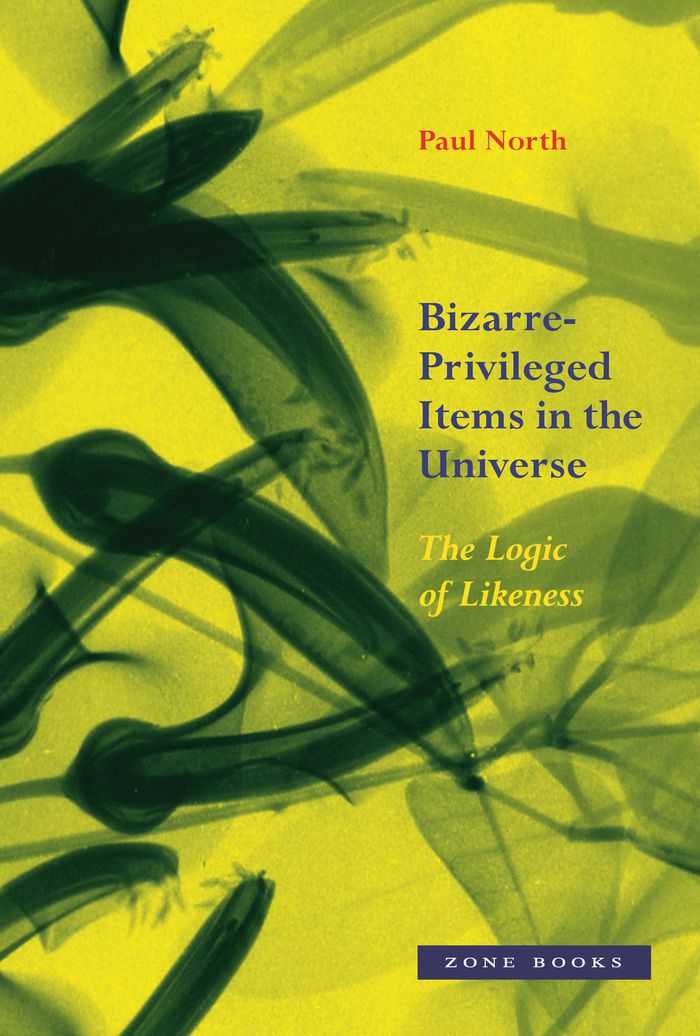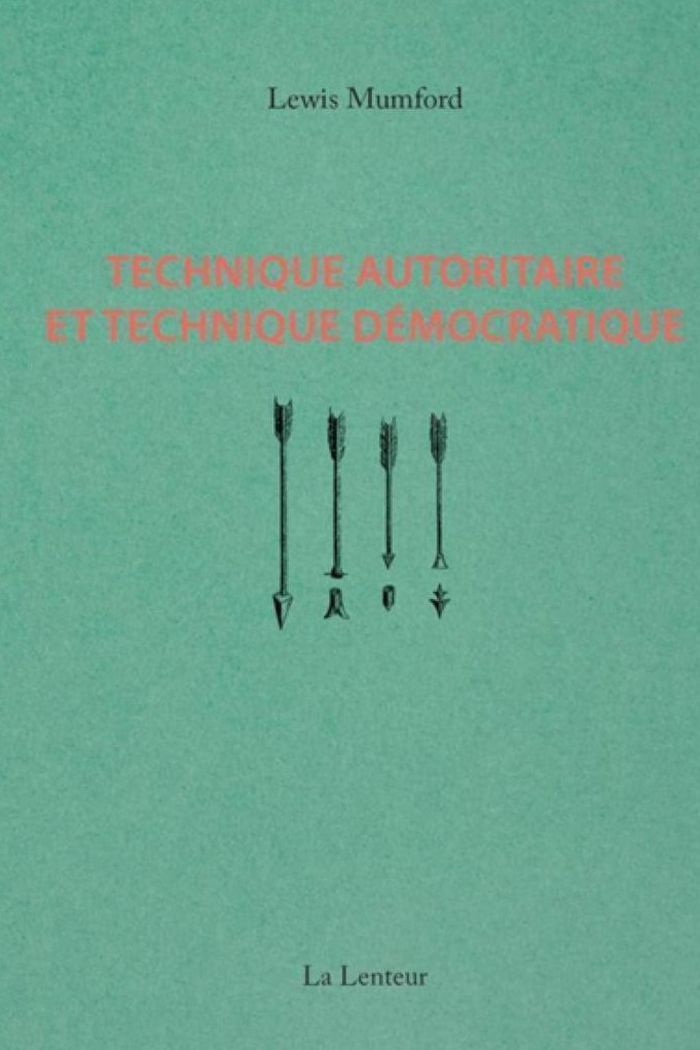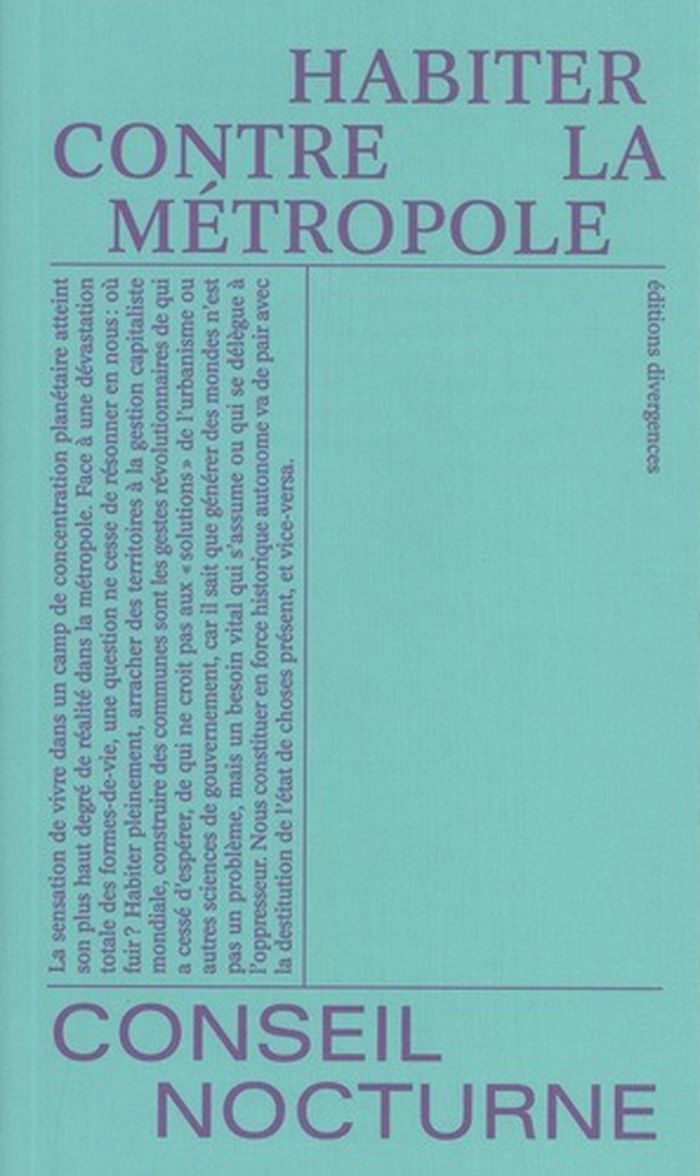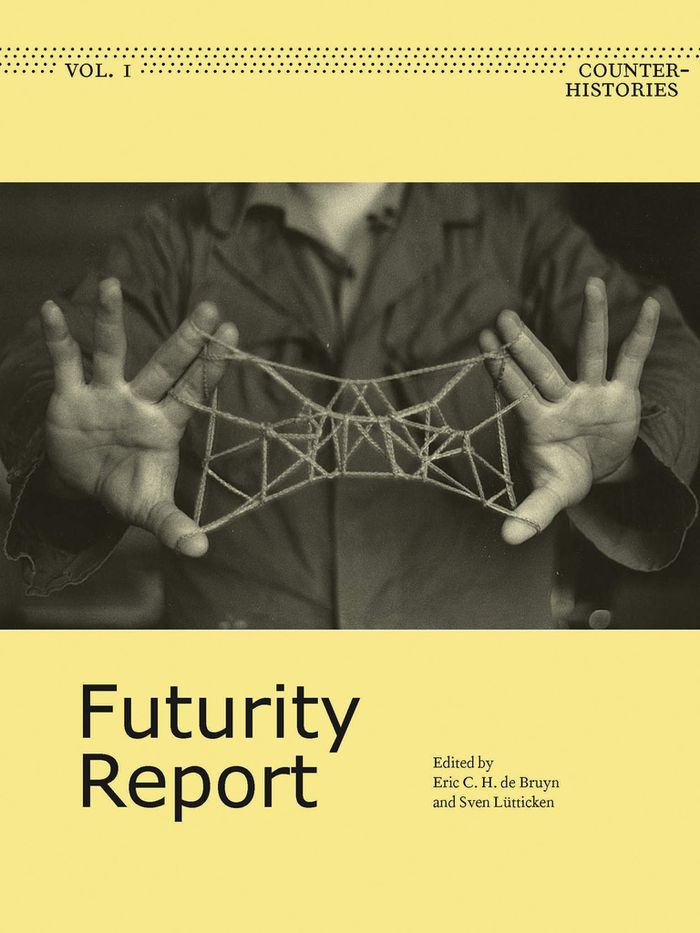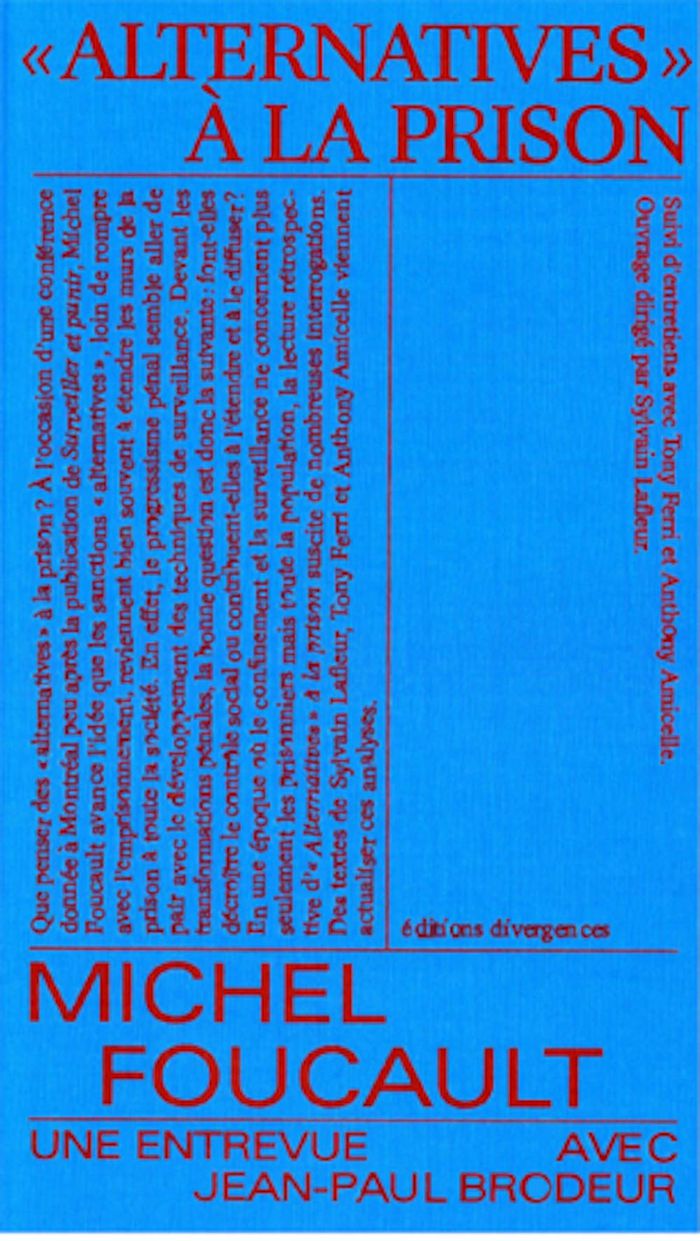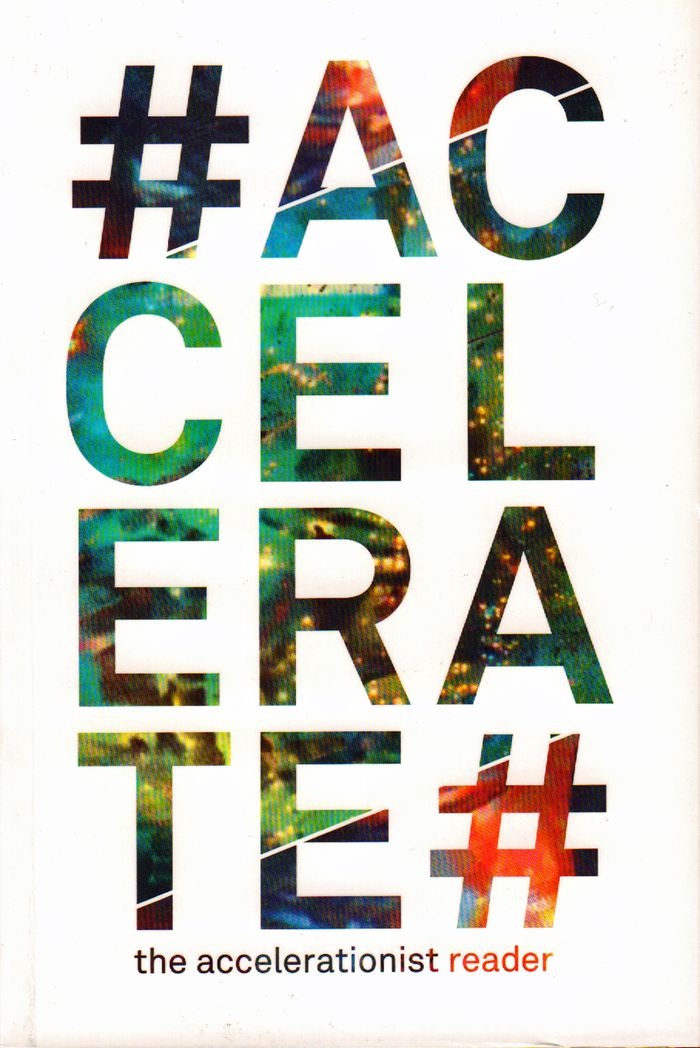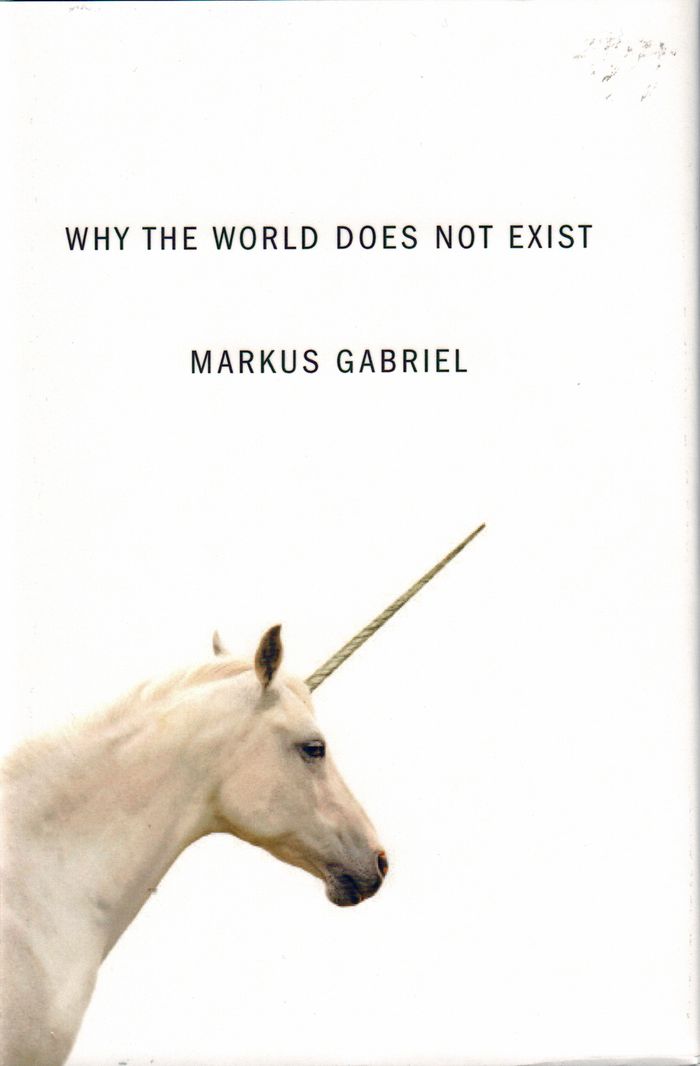Nomography
$15.95
(available in store)
Summary:
This book proposes a provocative interpretation of the dynamic relationship between the normative and the transgressive. Combining sociology, biopolitics and satire, it offers a surprising theory of normative imagination as a cognitive mode characteristic of the era of emotional capitalism. Gender, fashion, artistic creation and surveillance are analyzed from the(...)
Nomography
Actions:
Price:
$15.95
(available in store)
Summary:
This book proposes a provocative interpretation of the dynamic relationship between the normative and the transgressive. Combining sociology, biopolitics and satire, it offers a surprising theory of normative imagination as a cognitive mode characteristic of the era of emotional capitalism. Gender, fashion, artistic creation and surveillance are analyzed from the perspective of a regulatory drive, a continuously renovated and imperative push for normalcy that no longer comes from factual powers but from citizens themselves. These, united in a spontaneous popular court, armed with smartphones and driven by juridical compulsion, become the axis of societies of control. In this way the affective ways of constructing subjectivity are replaced by the distinctive pathology of our times, the name of the globalized game: normopathy for all.
Critical Theory
$40.00
(available to order)
Summary:
In thirteen interlocking chapters, Absentees explores the role of the missing in human communities, asking an urgent question: How does a person become a nonperson, whether by disappearance, disenfranchisement, or civil, social, or biological death? Only somebody can become a 'nobody,' but, as Daniel Heller-Roazen shows, the ways of being a nonperson are as diverse and(...)
Absentees: on variously missing persons
Actions:
Price:
$40.00
(available to order)
Summary:
In thirteen interlocking chapters, Absentees explores the role of the missing in human communities, asking an urgent question: How does a person become a nonperson, whether by disappearance, disenfranchisement, or civil, social, or biological death? Only somebody can become a 'nobody,' but, as Daniel Heller-Roazen shows, the ways of being a nonperson are as diverse and complex as they are mysterious and unpredictable. Heller-Roazen treats the variously missing persons of the subtitle in three parts: Vanishings, Lessenings, and Survivals. In each section and with multiple transhistorical and transcultural examples, he challenges the categories that define nonpersons in philosophy, ethics, law, and anthropology.
Critical Theory
$42.00
(available to order)
Summary:
A butterfly is like another butterfly. A butterfly is also like a leaf and at the same time like a paper airplane, an owl’s face, a scholar flying from book to book. The most disparate things approach one another in a butterfly, the sort of dense nodule of likeness that Roger Caillois once proposed calling a 'bizarre-privileged item.' In response, critical theorist Paul(...)
Bizarre-privileged items in the universe: the logic of likeness
Actions:
Price:
$42.00
(available to order)
Summary:
A butterfly is like another butterfly. A butterfly is also like a leaf and at the same time like a paper airplane, an owl’s face, a scholar flying from book to book. The most disparate things approach one another in a butterfly, the sort of dense nodule of likeness that Roger Caillois once proposed calling a 'bizarre-privileged item.' In response, critical theorist Paul North proposes a spiritual exercise: imagine a universe made up solely of likenesses. There are no things, only traits acting according to the law of series, here and there a thick overlap that appears 'bizarre.' Centuries of thought have fixated on the concept of difference. This book offers a theory that begins from likeness, where, at any instant, a vast array of series proliferates and remote regions come into contact. 'Bizarre-Privileged Items in the Universe' follows likenesses as they traverse physics and the physical universe; evolution and evolutionary theory; psychology and the psyche; sociality, language, and art. Divergent sources from an eccentric history give shape to a new trans-science, 'homeotics.'
Critical Theory
$18.00
(available to order)
Summary:
László Földényi’s work, in the long tradition of public intellectual and cultural criticism, resonates with the writings of Montaigne, Walter Benjamin, and Thomas Mann. In this new essay collection, Földényi considers the continuing fallout from the collapse of religion, exploring how Enlightenment traditions have not replaced basic elements of previously held religious(...)
Dostoyevsky reads Hegel in Siberia and bursts into tears
Actions:
Price:
$18.00
(available to order)
Summary:
László Földényi’s work, in the long tradition of public intellectual and cultural criticism, resonates with the writings of Montaigne, Walter Benjamin, and Thomas Mann. In this new essay collection, Földényi considers the continuing fallout from the collapse of religion, exploring how Enlightenment traditions have not replaced basic elements of previously held religious mythologies—neither their metaphysical completeness nor their comforting purpose. Realizing beautiful writing through empathy, imagination, fascination, and a fierce sense of justice, Földényi covers a wide range of topics including a meditation on the metaphysical unity of a sculpture group and an analysis of fear as a window into our relationship with time.
Critical Theory
$18.95
(available in store)
Summary:
Deux essais de Lewis Mumford, 'Technique autoritaire et technique démocratique' (1963) et 'L'héritage de l'homme' (1972) où il défend sa conception d'un être humain inventeur de symboles plus que d'outils techniques, et expose son concept de Mégamachine.
Technique autoritaire et technique démocratique
Actions:
Price:
$18.95
(available in store)
Summary:
Deux essais de Lewis Mumford, 'Technique autoritaire et technique démocratique' (1963) et 'L'héritage de l'homme' (1972) où il défend sa conception d'un être humain inventeur de symboles plus que d'outils techniques, et expose son concept de Mégamachine.
Critical Theory
Habiter contre la métropole
$26.95
(available to order)
Summary:
Face à une dévastation totale des formes-de-vie, une question ne cesse de résonner en nous : où fuir ? Habiter pleinement, arracher des territoires à la gestion capitaliste mondiale, construire des communes sont les gestes révolutionnaires de qui a cessé d’espérer, de qui ne croit pas aux « solutions » de l’urbanisme ou autres sciences de gouvernement, car il sait que(...)
Habiter contre la métropole
Actions:
Price:
$26.95
(available to order)
Summary:
Face à une dévastation totale des formes-de-vie, une question ne cesse de résonner en nous : où fuir ? Habiter pleinement, arracher des territoires à la gestion capitaliste mondiale, construire des communes sont les gestes révolutionnaires de qui a cessé d’espérer, de qui ne croit pas aux « solutions » de l’urbanisme ou autres sciences de gouvernement, car il sait que générer des mondes n’est pas un problème, mais un besoin vital qui s’assume ou qui se délègue à l’oppresseur.
Critical Theory
$39.95
(available to order)
Summary:
Theorists, historians, and artists address the precarious futurity of the notion of the future. Not long ago, a melancholic left and a manic neoliberalism seemed to arrive at an awkward consensus: the foreclosure of futurity. Whereas the former mourned the failure of its utopian project, the latter celebrated the triumph of a global marketplace. The radical hope of(...)
Futurity report, counter histories vol.1
Actions:
Price:
$39.95
(available to order)
Summary:
Theorists, historians, and artists address the precarious futurity of the notion of the future. Not long ago, a melancholic left and a manic neoliberalism seemed to arrive at an awkward consensus: the foreclosure of futurity. Whereas the former mourned the failure of its utopian project, the latter celebrated the triumph of a global marketplace. The radical hope of realizing a singularly different, more equitable future displaced by a belief that the future had already come to pass, limiting post-historical society to an uneventful life of endless accumulation. Today, amidst an abundance of neofuturisms, posthumanisms, futurologies, speculative philosophies and accelerationist scenarios, there is as well an expanding awareness of a looming planetary catastrophe driven by the extractionist logic of capitalism. Despite this return to the future, the temporal horizon of our present moment is perhaps more aptly characterized by the 'shrinking future' of just-in-time production, risk management, high-frequency trading, and the futures market. In "Futurity report," theorists, historians, and artists address the precarious futurity of the notion of the future itself.
Critical Theory
« Alternatives » à la prison
$35.00
(available to order)
Summary:
À l'occasion d'une conférence donnée à Montréal peu après la publication de « Surveiller et punir, » Michel Foucault répond à une question qu'on lui pose : y a-t-il des « alternatives » à la prison? Foucault doute que l'imposition croissante de conditions restrictives en dehors de l'enceinte de la prison témoigne d'une rupture avec l'emprisonnement; il semble en réalité(...)
« Alternatives » à la prison
Actions:
Price:
$35.00
(available to order)
Summary:
À l'occasion d'une conférence donnée à Montréal peu après la publication de « Surveiller et punir, » Michel Foucault répond à une question qu'on lui pose : y a-t-il des « alternatives » à la prison? Foucault doute que l'imposition croissante de conditions restrictives en dehors de l'enceinte de la prison témoigne d'une rupture avec l'emprisonnement; il semble en réalité que le progressisme pénal et le développement de techniques de surveillance aillent de pair. Ainsi ne s'agit-il pas tellement d'inventer des « alternatives », mais plutôt de savoir si l'on souhaite diffuser ou faire décroître le contrôle social. La lecture rétrospective d'« Alternatives » à la prison, loin de tarir les questionnements sur notre actualité criminologique, suscite de nombreuses interrogations quant à l'extension d'une société policée. Des textes de Sylvain Lafleur, Toni Ferri et Anthony Amicelle viennent actualiser cette analyse.
Critical Theory
$37.95
(available to order)
Summary:
Accelerationism is the name of a contemporary political heresy: the insistence that the only radical political response to capitalism is not to protest, disrupt, critique, or détourne it, but to accelerate and exacerbate its uprooting, alienating, decoding, abstractive tendencies. "#Accelerate" presents a genealogy of accelerationism, tracking the impulse through 90s UK(...)
#Accelerate: the accelerationist reader
Actions:
Price:
$37.95
(available to order)
Summary:
Accelerationism is the name of a contemporary political heresy: the insistence that the only radical political response to capitalism is not to protest, disrupt, critique, or détourne it, but to accelerate and exacerbate its uprooting, alienating, decoding, abstractive tendencies. "#Accelerate" presents a genealogy of accelerationism, tracking the impulse through 90s UK darkside cyberculture and the theory-fictions of Nick Land, Sadie Plant, Iain Grant, and CCRU, across the cultural underground of the 80s (rave, acid house, SF cinema) and back to its sources in delirious post-68 ferment, in texts whose searing nihilistic jouissance would later be disavowed by their authors and the marxist and academic establishment alike. On either side of this central sequence, the book includes texts by Marx that call attention to his own ‘Prometheanism’, and key works from recent years document the recent extraordinary emergence of new accelerationisms steeled against the onslaughts of neoliberal capitalist realism, and retooled for the twenty-first century. At the forefront of the energetic contemporary debate around this disputed, problematic term, "#Accelerate" activates a historical conversation about futurality, technology, politics, enjoyment and capital. This is a legacy shot through with contradictions, yet urgently galvanized today by the poverty of ‘reasonable’ contemporary political alternatives.
Critical Theory
Why the world does not exist
$28.00
(available to order)
Summary:
Where do we come from? Are we merely a cluster of elementary particles in a gigantic world receptacle? And what does it all mean? In this new book, the philosopher Markus Gabriel challenges our notion of what exists and what it means to exist. He questions the idea that there is a world that encompasses everything like a container life, the universe, and everything else.(...)
Why the world does not exist
Actions:
Price:
$28.00
(available to order)
Summary:
Where do we come from? Are we merely a cluster of elementary particles in a gigantic world receptacle? And what does it all mean? In this new book, the philosopher Markus Gabriel challenges our notion of what exists and what it means to exist. He questions the idea that there is a world that encompasses everything like a container life, the universe, and everything else. This all-inclusive being does not exist and cannot exist. For the world itself is not found in the world. And even when we think about the world, the world about which we think is obviously not identical with the world in which we think. For, as we are thinking about the world, this is only a very small event in the world. Besides this, there are still innumerable other objects and events: rain showers, toothaches and the World Cup. Drawing on the recent history of philosophy, Gabriel asserts that the world cannot exist at all, because it is not found in the world. Yet with the exception of the world, everything else exists; even unicorns on the far side of the moon wearing police uniforms.
Critical Theory
